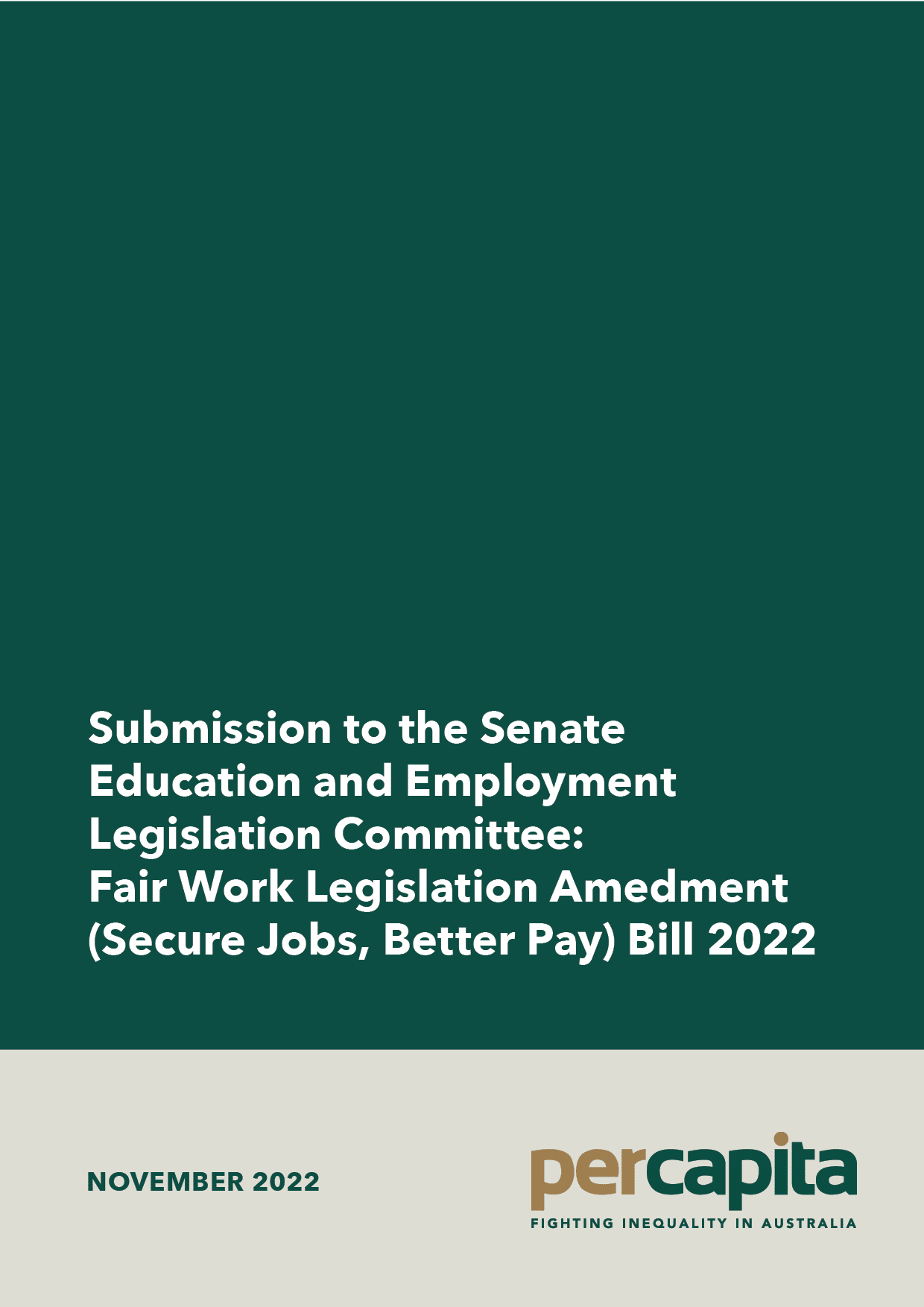Per Capita welcomes the opportunity to provide this submission to the Senate Education and Employment Legislation Committee’s inquiry into the provisions of the Fair Work Legislation Amendment (Secure Jobs, Better Pay) Bill 2022 (Cth).
Per Capita has considered the Bill and is supportive of its aims.
This submission will focus on the reforms contained in Schedule 1:
- pt 20 – supported bargaining;
- pt 21 – single interest employer authorisations; and
- pt 23 – cooperative workplaces.
It will also consider and address some recent criticism of the Bill.
The statutory framework for Australia’s industrial relations system has always been couched in terms of fairness, from its genesis, throughout every major reform to the Bill currently under consideration. We believe that an effective industrial relations system, remains consistent with the definition posited by the Committee of Review into Australian Industrial Relations Law and Systems, in their 1985 report (‘Hancock Report’):
An effective industrial relations system as one which is concerned with promoting and encouraging harmony and co-operation between industrial parties while providing mechanisms to resolve the competing interests of employers and workers in an equitable manner and in a way which has regard for the well-being of the community and the achievement of economic prosperity.
As expressed in the Hancock Report, Australia’s industrial relations system ‘is a product of history, and to a degree, it is captive to that history’. Reform cannot, nor should it, be approached on the basis that we can throw out the entire system and start again.
Whilst international comparisons can provide useful insights, it is erroneous to try and transplant regulatory approaches from other jurisdictions into Australian law. As asserted by Professor Anthony Forsyth, these systems, like ours, ‘are embedded in the specific economic, political and social contexts of their countries of origin.’
In general, Per Capita considers the reforms proposed in this Bill to be consistent with the Hancock Report’s definition for an effective industrial relations system, in the Australian context. The reforms contained in it are reasonable, not radical, and do not depart from the core elements which have persisted throughout every iteration of Australia’s industrial relations system.

